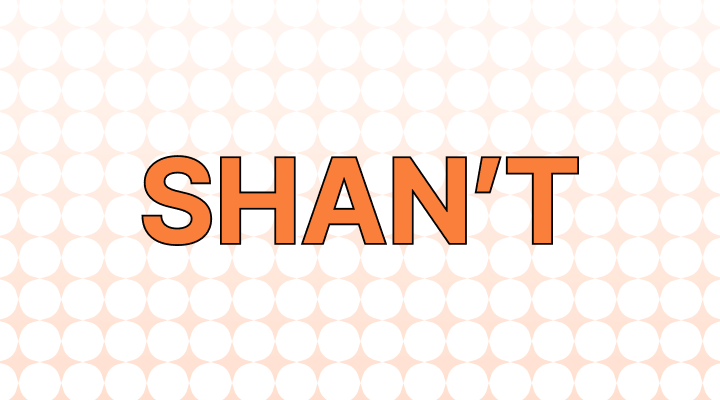"Shan't" is a now uncommon contraction of "shall not." It is an old-fashioned way of expressing refusal or negation.
How would you use "shan't"? Suppose Friend A asks Friend B, "Are you going to the party tonight?" Friend B may reply with, "I'm afraid I shan't be attending, as I have other commitments." His response means he shall not, or will not be, going to the party. The use of "shall" and its contractions comes off as more formal.
The following sentences further show how "shan't" can be used in context with the style of writing matching the time period in which "shan't" was used more commonly.
Example sentences
- I shan't be attending the soirée this evening, for I'm feeling rather indisposed.
- We shan't be traveling to the city during this inclement weather.
- I shan't tolerate such insolence from my servants!
- It's getting late; I shan't delay any further in returning home.
- I shan't stand for such injustice to persist in our society.
- We shan't give up hope in the face of adversity.
- I shan't permit anyone to besmirch my family's name.
- I shan't allow such a trivial matter to cloud my judgment.
- We shan't have a shortage of provisions if we plan the journey carefully.
- I shan't be swayed by mere rumors and gossip; I require solid evidence.
Want to sound like a native speaker?
Engram’s AI-powered grammar checker makes your English sound like a native speaker’s, suggesting natural English expressions on top of fixing grammar, spelling, punctuation, word order, and vocabulary.

Reference:
















